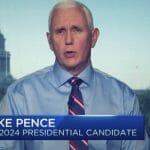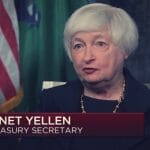the largest bond fund, more than $240 billion in assets in march. the firm will launch an etf version, that’s 40 basis points cheaper than a class a mutual fund.joining me now is pimco’s founder and co-chief investmentofficer, bill gross. bill, always good to have you on the program.welcome back. thank you, maria. the launch of this new etf set for march 1st, correct? what are the fees for this new fund? the fees are slightly higher than 50 basis points. and yes, the fees are lower than some of our retail classes. but it’s also higher than some of our traditional classes. it’s sort of in the middle.but it’s an attractive situation for individual investors who want to use lick ridity in the new york stock exchange, and the etf route to buy pimco total return, which has been a success story for the last 20 years. well, of course, we should point out that typically an etf is a lot cheaper than a mutual fund, or many things out there. but what are the differences between the total return fund and this new etf? we don’t know yet, because wehaven’t constituted the portfolio. but basically it will have muchthe same flexibility. there will be a little bit difference in terms of the potential to diversify through financial futures, and the like.but otherwise, we’re going to be running it the same way that werun the total return fund. i’ll be running the etf, which is called in symbols language, trxt, and i’ll be running that pimco total return fund. it’s basically, they’re twins. one great thing about etfs, iknow, in addition to the low fees, is the transparency. so i wonder, you know, having the information out there, dailydisclosure about how the fund is doing, where the assets undermanagement are, and what the total is of that etf, transparency is one of the best things about etf. but is that going to hurtperformance? we thought about that. but obviously the total return fund is very transparent. the market knows certainly bythe first few days of the month exactly what we own. we publish that. the market knows in terms of our transactions basically what we’re doing. we don’t think we’re exposing ourselves in terms of some type of secret sauce. we’re well aware that thisparticular route is a route that has more transparency. but we’re willing to be transparent. but bill, let’s talk about some of those withdrawals. of course, a lot of investors want some answers here. you saw $5 billion in total return withdrawals in 2011. how do you keep investors all in in 2012? how do you get that money back? well, you do it with performance. and i would say this, maria, yes, technically that’s correct. but the total return fundstarted in 2011 at $240 billion and ended at $244 billion. so to our waive y of thinking ts more in way of client dollars. clients spend bond moneys because that’s what they do in retirement.so re grew by $4 billion. and the headline numbers, in terms of the demise of the total return fund i think are exaggerated, much like mark twain’s death. so what do you expect for 2012, in terms of returns? i know that we’ve talked about deleveraging quite a bit. you say zero bound interest rates, investors need to expect lower returns. what are your expectations? i think they should. the bond market, to which the total return fund, and the etf will be benched, the will be benched, the barclay’saggregate includes both corporate mortgages and treasury all together in terms of investment grade space. you have basically yields about 2.5%. you know, the framm oil filter commercial says basically what you see is what you get. so the plus or minus is where the bond market now rests in terms of a yield.so what can bond investors expect going forward? i think if the total return fund can do its typical historical alpha edition in terms of 100 basis points, we can provide 3.5% to 4%. those types of returns based on zero bound interest rates are not what only bond investors but equity investors should expect going forward. so you’ve got to manage your business with your ownanticipation of the economy, where rates are going. give us your take on the broader economy. are you still worried about theglobal economy and the financial markets being at risk? where do you stand here? we’re very worried, maria. we’re talking about it right now in terms of the investment committee.muhammad is running that committee as i speak. basically we sense a bigger world, two different fat tails. one in terms of potential reflation. they’re basically printing money in the hundreds of billions. bank of england, and that can potentially produce reflation. that’s why we’re seeing the pop in gold and oil, et cetera. but if the private credit markets can’t basically, youknow, produce some type of confidence and solvency goingforward you expect a deflation. we’re at risk not only in the united states but on a global basis in terms of bi-modal outcomes. if you think the company is still at global risk, then you don’t think rates will go much higher in 2012, very quickly, bill? we think the fed is going to stay exactly where it is. for three to four years.good to have you on the program, as always. we’ll watch for the launch of the etf in march. thank you very much. thank you very much. founder of pimco.
Bill Gross, PIMCO founder & co-CIO, discusses PIMCO’s new ETF, which is set for a March 1 launch. “Don’t expect transparency of the new ETF to hurt performance,” he says.
Video and text below:











